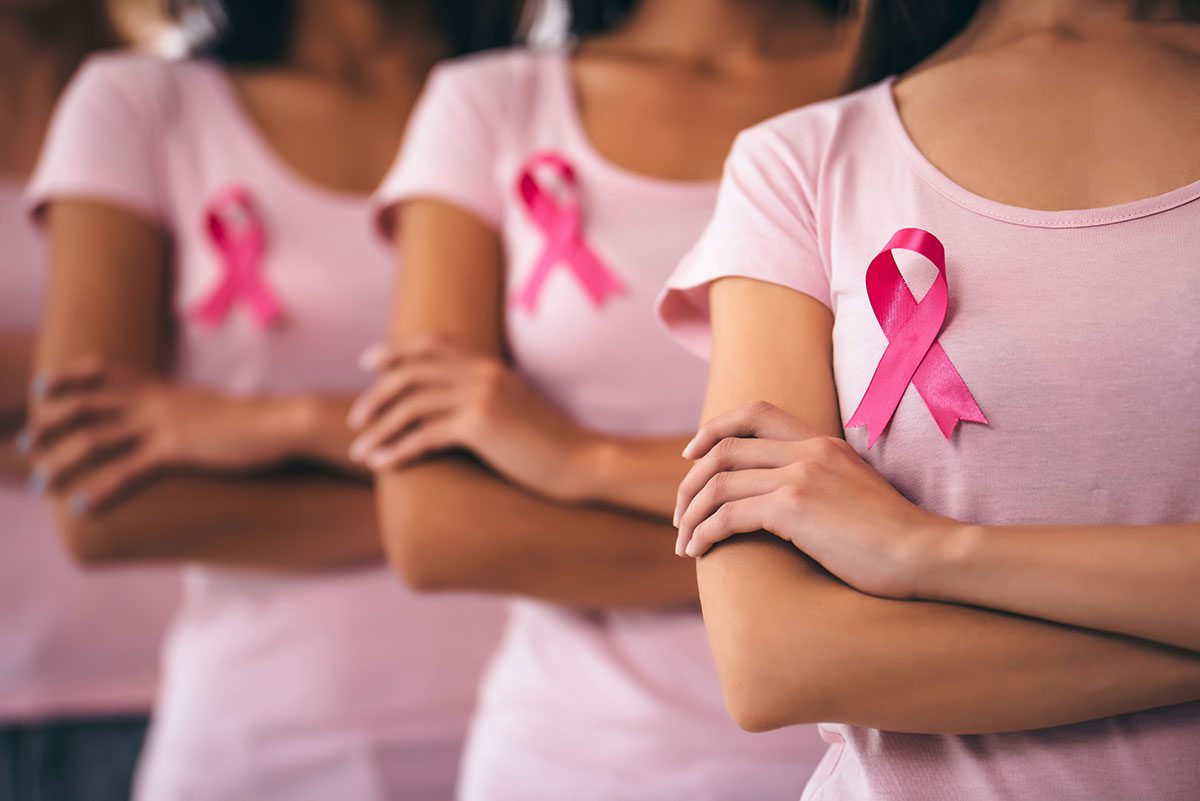About 1 in 8 women in the U.S. (13%) develop invasive breast cancer. Furthermore, 43,600 U.S. women are expected to die from breast cancer in 2021.
Fortunately, catching breast cancer early saves lives. Since October is Breast Cancer Awareness Month, it’s a great time to review your breast health and cancer prevention plan.
Detection: Mammograms and Self-Exams
If you’re over age 40 or at a high risk for breast cancer, you should have an annual mammogram and a physical exam. A mammogram can identify breast changes that could be cancer years before physical symptoms develop.
When it comes to breast cancer, early detection leads to better outcomes. Regular mammograms lead to earlier detection, less aggressive treatment, and higher survival rates.
Mammograms may miss some cancers so additional tests may be needed if an area of concern is identified.
Like mammograms, self-exams can help you find breast cancer earlier and increase your chances of survival. The National Breast Cancer Foundation recommends that adult women perform monthly self-exams in a variety of positions to check for lumps, changes in the contour, dimpling of the skin or changes in the nipples. Alert your physician of any changes you notice.
Keep in mind that the younger you do the self-exam, the higher the false positive result rate. Unfortunately, a lump may cause a lot of anxiety and turn out to be nothing. Your healthcare provider can help you develop a care plan that minimizes anxiety and maximizes your health.
Prevention: Healthy Lifestyle Choices
Several lifestyle choices may impact your risk of developing breast cancer. Here are some of the top recommendations:
- Avoid smoking. Smoking increases your breast cancer risk, especially if you’re in pre-menopause.
- Limit alcohol. The more alcohol you drink, the greater your risk of developing breast cancer. Limit yourself to less than one drink per day to minimize your risk.
- Maintain a healthy weight. Being overweight or obese increases your risk of breast cancer. This is especially true if obesity occurs after menopause when fat tissue produces the majority of a woman’s estrogen—instead of the ovaries. Estrogen can stimulate cell overgrowth and breast cancer.
- Stay physically active. Exercise can help you maintain a healthy weight, which helps prevent breast cancer. Each week, most adults should get at least 150 minutes of moderate aerobic activity or 75 minutes of vigorous aerobic activity. Also, it’s beneficial to do strength training at least twice a week.
- Choose a balanced, nutritious diet. Eat an abundance of fruits and veggies each day and limit processed and red meats. Harvard researchers found that women with high levels of carotenoids, which are found in leafy greens, carrots and red peppers, had a lower risk of developing breast cancer. Consuming phytonutrients including sulforaphane (found in cruciferous vegetables) and lycopene may also protect against breast cancer.
Read more:
- American Cancer Society
- Breastcancer.org
- Mayo Clinic
- National Breast Cancer Foundation
- National Cancer Institute
If you would like to meet with a knowledgeable doctor, consider contacting Women’s Health Arizona. As Arizona’s largest ObGyn group, we’re trained and solely dedicated to delivering the best ObGyn experience in convenient and comfortable settings around Phoenix and Prescott.

